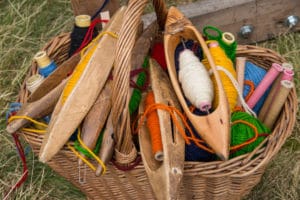
Last week, I had the privilege of once again participating in a Story Bridge event in Seattle. A very diverse group came together to share and perform our stories as a way of exploring issues facing Seattle’s historic African-American neighborhood, the Central District, now challenged by gentrification.
In an early exercise we each shared a story with a partner, in response to a story prompt to talk about a time when we rose to an occasion in our lives. My partner-in-story was a tall African-American man who offered a poignant story about surviving a health crisis. I offered him my story about moving to New York City, lonely and afraid, only to be mugged during my first week living in Brooklyn. As I started to share my story, I looked at my partner and wondered if it would be offensive to mention that the assailant who had pointed a gun at my head was a tall African-American man. But my partner, who had lived for years in Harlem, listened with warm attention, and said, “That’s terrible, How did that feel?” And once again, through the magic of Story Bridge, I found myself feeling held and supported, and falling in love with this partner whom I had only met thirty minutes earlier.
What a gift it is to be able to see in the lives of people whose lives have been so different than ours!
When I can’t be participating in a live experience like Story Bridge, another way I learn about people’s lives is by reading memoirs. Unlike an autobiography, a memoir gives us a slice of a life, not the whole pie. A memoir is an author’s attempt to make meaning out of the shards, scraps, and stories of her or his life.
I’ve heard it said that there are too many memoirs being written today–I disagree. That’s like saying there are too many stories! Memoirs offer a way to travel into lives we would never otherwise know.
Here are a few memoirs I’ve read recently
My Life So Far by Jane Fonda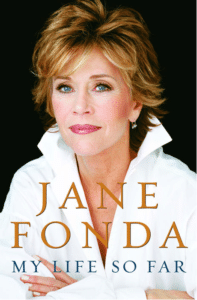
Love her or hate her, Jane Fonda’s has had a lot of influence throughout her seventy-plus years. Who would have known that behind the curtain, she was a very vulnerable woman, born to a father who could only express himself emotionally when he acted. Fonda ended up subordinating herself to men, making some bad decisions, and only beginning to feel like she could really be herself when she turned sixty. This isn’t a “poor me” story, which would have been ridiculous from a woman with such a global presence. Fonda transported me back into memories of my own youth, growing up in the 50’s and then at college during the Vietnam war when social change was exploding everywhere. Fonda, like all of us humans, is complicated: a woman who was a sex-object in some of her films, but also a feminist; a social justice advocate who married and divorced a former radical and then married a multi-millionaire; a bulimic who brought health and fitness to millions of American women. Today, she continues acting but spends much of her time helping young, indigent women in Georgia. She’s definitely not done yet.
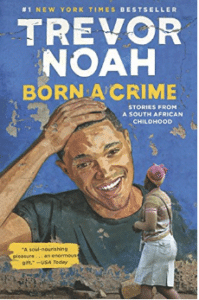 Born a Crime by Trevor Noah
Born a Crime by Trevor Noah
When Trevor Noah took over The Daily Show on TV’s Comedy Central, he began as “Not Jon Stewart” (the famous former host). Reading Noah’s memoir, Born a Crime, I see Trevor Noah now as his own guy and a great choice for the show. In his book, Noah brings humor and history together, offering us a view into South Africa’s stratified society during the apartheid and post-apartheid periods–as seen by someone whose mixed-race status and education insured that he didn’t fit in anywhere. Unlike the satirical books authored by Daily Show alumni Steven Colbert and Jon Stewart that flamed and faded, Noah’s book is built to last: funny, gritty, and worth reading.
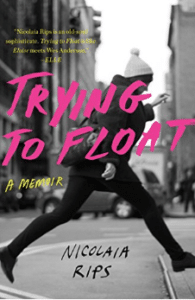 Trying to Float: Coming of Age in the Chelsea Hotel by Nicolaia Rips
Trying to Float: Coming of Age in the Chelsea Hotel by Nicolaia Rips
Who’d think that a high school student could write such a magical tale of growing up in New York City’s famous Chelsea Hotel, home to artists, derelicts, poets, and prostitutes? The setting is fascinating, her writing fresh and engaging. And, as quirky as life in the Chelsea was, Rips spins a story that reminds us of what it was l like to never-quite-fit-in at school and in our pre-adolescent years. I was captivated!
The Glass Castle by Jeannette Walls
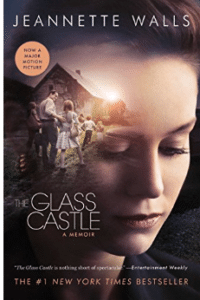 How do you take a truly terrible childhood, and bring it to life without trashing the people who should have taken care of you but didn’t? Jeanette Walls does this in The Glass Castle. She begins the book with an opening scene of her, as a successful adult, happening upon her mother dumpster diving in New York City. I was riveted and continued so throughout the book. This book has been already made into a movie–but I wouldn’t want to have missed her heartfelt and gripping prose.
How do you take a truly terrible childhood, and bring it to life without trashing the people who should have taken care of you but didn’t? Jeanette Walls does this in The Glass Castle. She begins the book with an opening scene of her, as a successful adult, happening upon her mother dumpster diving in New York City. I was riveted and continued so throughout the book. This book has been already made into a movie–but I wouldn’t want to have missed her heartfelt and gripping prose.
Another way to learn from the power of storytelling is to write about your own life, whether it be in a book, journal, or on the back of napkins. In writing, we learn that stories aren’t static and we can reshape the narratives we grew up with.
Whether it be through live community events like Story Bridge, memoirs we read, or our own writings, we create a rich tapestry of community as our stories are woven together.









